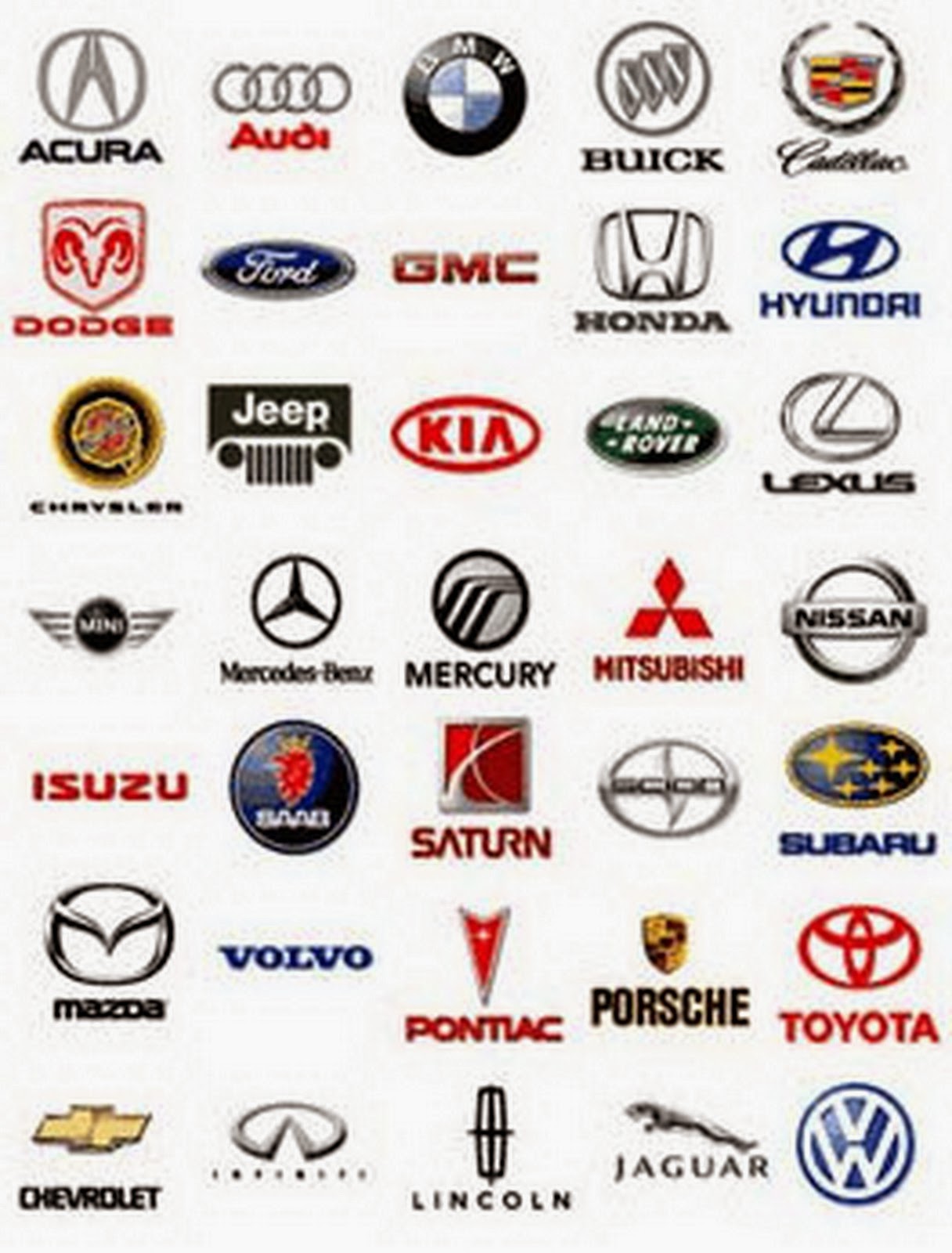Decoding the Secrets Behind Automotive Emblems

Ever glance at a car whizzing by and instantly recognize its make? That's the power of a well-crafted automotive brand identity. Car logos and names are more than just visual cues; they're potent symbols imbued with history, meaning, and carefully cultivated associations. They're a shorthand for a company's values, aspirations, and the experience they promise to deliver. This exploration delves into the complex world of automotive emblems, uncovering the strategies, stories, and significance behind some of the most recognizable marques on the road.
From the sleek lines of a prancing horse to the four interlocking rings, car logos are instantly recognizable across cultures and languages. These emblems represent decades, sometimes centuries, of engineering innovation, design evolution, and marketing prowess. Understanding the nuances of these automotive identifiers provides a glimpse into the complex interplay of history, design, and consumer psychology that shapes the automotive landscape.
The origins of car logos often trace back to the founding families, geographical locations, or core values of the companies they represent. Some draw inspiration from heraldry, mythology, or even abstract concepts, while others opt for minimalist representations of their initials or names. Over time, these logos evolve, reflecting shifts in brand identity and adapting to changing design trends. Examining these evolutions reveals a fascinating narrative of how automakers strive to maintain relevance and resonate with their target audiences.
The significance of car brand names and logos lies in their ability to convey a wealth of information in a single glance. They act as powerful shortcuts, communicating a brand's heritage, performance capabilities, target demographic, and overall market positioning. A luxury automaker might choose a name that evokes elegance and prestige, while a performance-oriented brand might opt for something that suggests speed and power. These carefully chosen names and logos play a crucial role in shaping consumer perception and influencing purchasing decisions.
However, maintaining a strong brand identity in the competitive automotive market is not without its challenges. Automakers must navigate evolving consumer preferences, cultural sensitivities, and the ever-present threat of counterfeiting. Furthermore, in an increasingly globalized world, brands must ensure their logos and names translate effectively across different languages and cultures. Successfully managing these challenges is essential for maintaining brand integrity and ensuring continued success in the automotive industry.
The history of car logos is deeply intertwined with the history of the automobile itself. Early logos were often elaborate and ornate, reflecting the craftsmanship and luxury associated with early motorcars. As the automobile became more accessible to the masses, logos transitioned towards simpler, more streamlined designs. The evolution of the Ford logo, from its intricate script to the now-iconic blue oval, perfectly illustrates this trend.
One benefit of a recognizable car logo is instant brand recognition. For example, the Mercedes-Benz three-pointed star instantly conveys luxury and prestige. Another benefit is brand loyalty. Customers who have positive experiences with a particular brand are more likely to remain loyal to that brand, partly due to the emotional connection they have with its logo and name. Finally, a strong brand identity can command higher prices. Luxury brands like Rolls-Royce and Bentley can charge premium prices because their logos and names represent exclusivity and high quality.
Advantages and Disadvantages of Strong Car Branding
| Advantages | Disadvantages |
|---|---|
| Increased Brand Recognition | High Marketing Costs to Maintain Brand Image |
| Enhanced Customer Loyalty | Potential for Negative Publicity to Damage Brand |
| Premium Pricing Opportunities | Difficulty Adapting to Changing Market Trends |
Five Real Examples: Think of Ferrari (prancing horse - performance and Italian heritage), Volvo (Iron Mark - safety and Swedish strength), Toyota (interlocking ellipses - unity and global reach), BMW (roundel representing a propeller - aviation heritage), and Audi (four rings - merging of four companies).
Five Challenges and Solutions: Counterfeiting (solution: advanced security features in logos), Negative Publicity (solution: proactive crisis communication), Changing Consumer Preferences (solution: adaptive brand strategies), Cultural Differences (solution: localized marketing campaigns), Maintaining Brand Consistency Across Global Markets (solution: centralized brand management).
FAQ: What is the oldest car logo? What is the most recognized car logo? What inspires car logo design? How often do car logos change? What is the purpose of a car logo? How do car logos impact sales? What are the legal implications of car logos? How do car brands choose their names?
(Provide general answers to these questions)Tips and Tricks: Research the history of car logos. Analyze the design elements of successful logos. Consider the target audience when designing a car logo. Ensure the logo is scalable and versatile. Protect the logo legally.
In conclusion, car brands with their respective logos and names are much more than simple identifiers. They represent the culmination of years of innovation, design, and marketing efforts. They tell a story, evoke emotions, and build connections with consumers. From the iconic prancing horse of Ferrari to the minimalist elegance of Tesla's "T," these emblems are powerful symbols that resonate across cultures and generations. Understanding the history, significance, and strategies behind these automotive identifiers provides valuable insights into the dynamics of the automotive industry and the power of branding. By appreciating the nuanced interplay of design, history, and consumer psychology, we gain a deeper appreciation for the vehicles we drive and the brands that define them. Take a moment to consider the next car logo you see – what does it tell you about the brand, its history, and the values it represents? The story is often more complex and fascinating than you might think.
Devouring dimensions eat the world tree manga explored
Dog fur turning pink causes solutions and care tips
Conquer your california payday mastering your monthly income






.jpg)






